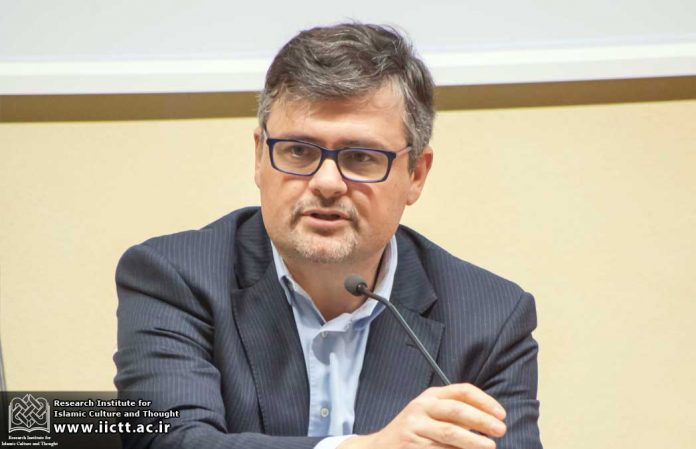,
,,
,
,,In 25th of January 2017, Center of Excellence for Philosophy of Religion (CEPR) at Islamic Research Institute for Culture and Thought (IICT) hosted some professors of different foreign university the world over.
,
,,Iranian participants were as follows:
,
,,– Hojjat-ul-Islam Dr. Abolfazl Sajedi, Director of CEPR
,
,,
,
,,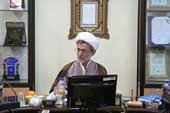
,
,,– Dr. Mohammad Mohammad Rezaei, Faculty Member at IICT and a Member of CEPR
,
,,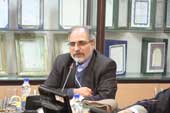
,
,,– Hojjat-ul-Islam Dr. Alireza Qaeminia, Faculty Member at IICT
,
,,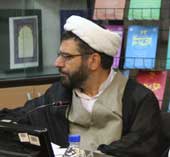
,
,,– Dr. Mahdi Abbaszadeh, Faculty Member at IICT and the advisor to IICT’s president, Ayatollah Rashad
,
,,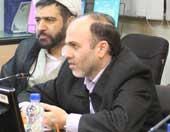
,
,,– Hojjat-ul-Islam Hamed Fatemiravesh, Director of Public Relations of IICT
,
,,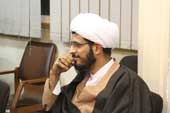
,
,,– Hamid Amirchaqmaqi, Executive Director of CEPR
,
,,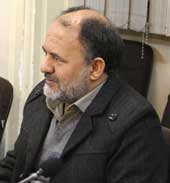
,
,,– Javad Taheri, Administrator of International Affairs of IICT and Organizer of the Meeting
,
,,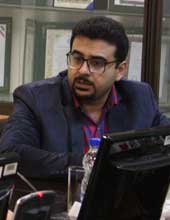
,
,,Foreign participants were as follows:
,
,,– Dr. Andrea Aguti: University of Urbino, Italy
,
,,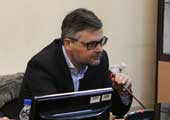
,
,,– Dr. Lenart Skof, Institute for Philosophical Studies, Koper, Slovenia
,
,,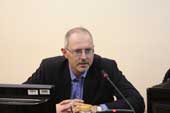
,
,,– Dr. Abdulla Galadari: Al-Maktoum College, Scotland
,
,,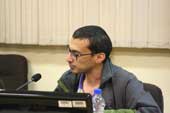
,
,,– Dr. Mirushe Hoxha: Ss. Cyril and Methodius University of Skopje, Macedonia
,
,,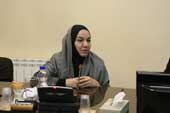
,
,,– Dr. Ferhat Yney: Medeniyet University
,
,,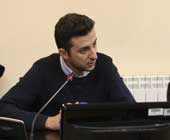
,
,,In this meeting, Hojjat-ul-Islam Dr. Sajedi, at first, gave an overview about IICT, especially about its divisions and activities. He, also pointed to the scientific activities and programs of Center of Excellence for Philosophy of Religion. Dr. Abolfazl Sajedi, then, explained the aims and objectives of holding the meeting and asked foreign and Iranian participants to introduce themselves.
,
,,Dr. Andrea Aguti introduced himself and presented a report about the status of philosophy of religion in Italy and activities which have been done in his institute and what needs to be done in future. Aguti suggested that research and scientific cooperation between Italy and Iran especially between University of Urbino and Center of Excellence for Philosophy of Religion (CEPR) at Islamic Research Institute for Culture and Thought should be established and improved. He said that this is because Iran is one of the most influential countries in the field of religious studies, philosophy of religion in particular, and there are many professors and researchers in different universities in Iran who are specialist in at least one of the main topics in philosophy of religion. Also, there are many academic experts on the mentioned fields in Italy who are interested to be in contact with Iranian scholars.
,
,,Dr. Lenart Skof pointed to the main research interests of professors in Slovenia. He mentioned that religious scholars in Slovenia especially in his institute, Philosophical Studies Institute, are much more interested in subjects which focus on the relationship between religion and society; i.e. subjects that investigate the practical implication of religious scholarship.
,
,,Accepting the aforementioned points of interest and the need for common scholarship; Dr. Abdulla Galadari and Dr. Ferhat Yney stressed on one of the most important themes in the field of philosophy of religion; i.e. the relationship between religion and science. They mentioned that with regard to the new scientific discoveries and advances, the role and status of religion should be specified in the world. Galadari and Yney promised that they will follow up the issue of cooperation between their universities and Center of Excellence for Philosophy of Religion and other centers in Islamic Research Institute for Culture and Thought.
,
,,Dr. Mirushe Hoxha from Ss. Cyril and Methodius University of Skopje in Macedonia, believed that the main concern is the concept of religion itself. She gave examples about how the notion of religion has been misunderstood the world over. In her idea, the most important issue in the field of religious studies is the quiddity and definition if religion. She also promised to establish relationships between IICT and some departments and institutes in Macedonia.
,
,,During the meeting, Iranian professors including, Dr. Abolfazl Sajedi, Dr. Alireza Qaeminia, Dr. Mohammad Mohammad Rezaei and Dr. Mahdi Abbaszadeh had their own discussions with foreign professors in separate panels and the meeting went on in a little bit more professional and academic way.
,
,,At the end of the meeting, all members agreed on a Memorandum of Understanding and Intercommunion. Finally, it was decided that both sides, Iranian and foreign, need to be in touch via video conferences, personal correspondences and face-to-face meetings in order to accomplish the contents of Intercommunion.
,
,,
,
,,

